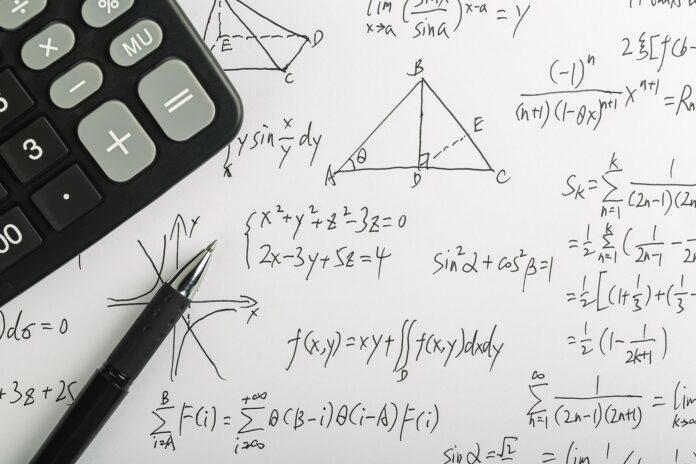It’s no secret that mathematics is a subject that many students struggle with right from elementary school all the way to college. And since there is this perception that it’s a difficult subject, even students who don’t struggle with the subject find themselves disliking it. While a lot has been done to change students’ attitudes towards math, it’s not yet enough because their performance says it all.
Mathematics is a unique subject because, unlike other subjects, you can’t use your words to solve the problems presented to you. Instead, every student has to learn how to use the stipulated formulas to arrive at the correct answer. The good news is, educators have figured out different approaches to problem-solving to accommodate students’ different understanding capacities. So, no matter how bad you think you are at the subject, there is a way for you to learn mathematics fast.
One could not be complete without mathematics even if the world were not civilized because we unconsciously apply it in simple day-to-day activities. Take, for instance, you’re at a restaurant, you have to know maths to calculate how much you should tip the waiter who served you. The truth is, math has a bad rep when in fact, we apply it with ease when we don’t feel pressured to pass exams or get the right answers in an exam.
This is because, over the years, educators have unconsciously put too much emphasis on fast calculation, forgetting that slow learners and slow thinkers cannot pull that offer. So, when fast thinkers and fast learners get their answers in record time, the rest of the class feels incapable of comprehending mathematical concepts. But there is still hope for students who are struggling with this subject, and this article will teach you how to learn math fast, even as a slow learner.
1. Engage With the Subject

Even though mathematics is not a subject that allows you to express your thoughts, you can still engage it using its formulas. You’re likely to learn faster when you embrace mathematical formulas as another language you can use to express yourself. Many students feel aloof when tackling math problems because they feel like they’re using a foreign language to operate.
Learn math formulas with the same enthusiasm you approach foreign languages because the only difference is that math uses numbers and symbols while ordinary languages use letters. Your brain has the capacity to master every mathematical formula that ever existed if you only gave it a chance.
Once you understand the language of mathematics, you’ll find yourself enjoying lessons because your brain will be in a position to comprehend everything your teacher is saying. And while you’re in a math class, don’t hesitate to participate because the more you engage with the subject, the easier it will be.
Ask your teacher questions when you don’t understand, and feel free to float new problem-solving ideas you discovered during study time. You could go the extra mile of helping your classmates who struggle with certain math concepts because when you explain something you already know, the information is reinforced in your brain. You could even form a math discussion group where you look for old exam papers to revise.
Over time, you realize that math questions remain the same, and your teacher only plays around with numbers to make them seem different. Revising old exam papers gives you unlimited opportunities to practice the math language you’ve spent so much time learning.
2. Start From the Basics

While you learn how to interact with math, be sure to avoid anything that triggers students’ hate for the subject. Instead of forcing yourself to enjoy a subject, you don’t even enjoy, make an effort to understand what it is about first. After all, you cannot enjoy something you don’t understand.
Whether you’re tackling a simple or a complex math concept, ensure you take your time to fully understand the basics. The good thing about studying in today’s information era is, you can turn to professionals from 123Homework for help with pre-algebra while you figure out how the concepts work. This way, your academic performance won’t suffer simply because you don’t understand a few mathematical concepts.
Starting from the basics is synonymous with laying a good foundation for a house. So, no matter how complex the concepts get as you move higher in your educational journey, you won’t struggle with understanding because you have a good foundation on the subject.
Mastering the basics applies to everyone, including students who feel they have a good grasp of most mathematical concepts. This way, adding more complex information to what you already know will not overwhelm your brain.
3. Develop Number Sense Rather Than Memorizing

Memorizing works fine when you’re studying for a history or geography paper, but this strategy won’t do much for you if you’re preparing for a math exam. What you need to do instead of memorizing how to solve problems is to develop number sense.
When you memorize, a simple alteration in the way a question is set will throw you off, and you won’t know how to solve it. Number sense, on the other hand, helps you break down a math problem and figure out the best formula to solve it.
4. Have a Goal in Mind

Setting goals when you learn mathematics gives you fulfillment and the enthusiasm to keep going. Once you’ve mastered basic math skills, you can begin exploring the concepts, one at a time, until you catch up with everything.
Set a timeline for yourself and be open to asking for help when you get stuck. Go through even concepts you think you’re pretty good at because there is always a chance that you’ve missed a given concept.
Throughout this process, think about your future and what you want to venture into. For instance, if you want to specialize in physics, you want to ensure you’ve mastered every math concept that heavily overlaps with physics. The same applies to biology, chemistry, engineering, and many other subjects.
Wrapping Up
It’s important to embrace mathematics because the concepts it teaches are intertwined with some of the most important life skills. Even if you’re pursuing a course that isn’t closely related to mathematics, chances are, you’re doing a unit in the subject because learning institutions understand that you’re bound to apply mathematical concepts in your job and throughout your life.







